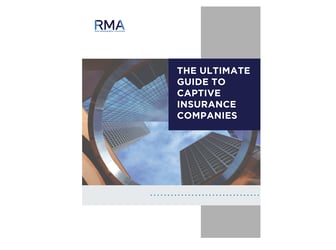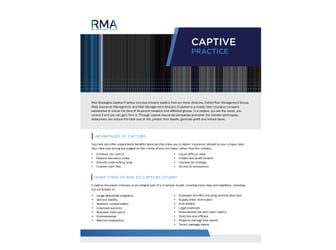As a business owner, providing healthcare benefits for your employees is a crucial decision. Self-funded medical insurance is an option that is gaining popularity among business owners. This section will guide you through the importance of self-funded medical insurance and its advantages and disadvantages.
Self-funded medical insurance allows business owners to have greater control over their employees' healthcare benefits. Instead of paying a fixed premium to an insurance company, the business sets aside funds to cover healthcare costs. This approach provides flexibility and can potentially lead to cost savings.
One of the main advantages of self-funded medical insurance is the ability to customize healthcare plans to meet the specific needs of your employees and your business. You have the freedom to design benefit packages that align with your company's values and budget. Additionally, self-funded plans often offer more transparency, enabling you to have a better understanding of healthcare costs and usage patterns.
How Does Self-Funded Medical Insurance Work?
Instead of paying fixed premiums, businesses that offer self-funded medical insurance set aside funds to cover their employees' healthcare costs. These funds can come from a combination of employer contributions and employee contributions through payroll deductions. This approach allows businesses to have more control over the specifics of their healthcare plans and potentially save money if their employees' medical expenses are lower than expected.
One of the key features of self-funded medical insurance is the ability for employers to customize their plans to meet the specific needs of their workforce. They can tailor the coverage options, benefit levels, and network providers to ensure that their employees receive the healthcare they need while managing costs effectively.
Here's a table to help you understand the basic comparison between self-funded medical insurance and fully-insured plans:
|
Aspect |
Fully Insured Group Benefits |
Self-Funded Group Benefits |
|---|---|---|
|
Cost Predictability |
Fixed monthly premiums |
Variable costs based on claims |
|
Risk Responsibility |
Insurance company bears risk |
Employer bears risk with stop-loss |
|
Plan Customization |
Limited control over design |
Flexible customization of benefits |
|
Financial Risk |
Transferred to the insurer |
Assumed by the employer with safeguards |
|
Cost Savings Potential |
Carrier keeps underwriting profit |
Savings through lower expenses and efficient management |
|
Cash Flow Management |
Consistent monthly premiums |
Need to manage cash flow for claims |
Understanding self-funded medical insurance gives business owners an opportunity to explore alternative strategies for providing healthcare coverage to their employees. While it may not be suitable for every business, self-funding can offer flexibility, cost savings, and tailored benefits. It is essential to consult with a healthcare benefits consultant or insurance professional to determine if self-funded medical insurance is the right choice for your company.
Self-funded medical insurance can be a viable option for business owners looking to provide healthcare benefits to their employees while having more control over their healthcare costs. By self-funding their medical insurance, business owners can customize their plans to meet the specific needs of their employees and save on premium costs. However, self-funded insurance also comes with risks and responsibilities, such as potential liability for high-cost claims. Therefore, it is crucial for business owners to thoroughly assess their financial situation and risk tolerance before deciding to self-fund their medical insurance.
Explore
- Solutions
- Captive Insurance
- Captive Insurance Overview
- What is Captive Insurance?
- Definition of Captive Insurance
- Types of Captive Insurance
- Typical Structures of a Captive Insurance Program
- Why Form a Captive Insurance Company?
- Captive Insurance Utilization and Value
- Evaluating a Captive Insurance Program
- How to Setup a Captive Insurance Company
- Operating a Captive Insurance Company
- Captive Insurance Operating Costs
- Retaining Risk vs. Financing Risk
- Risk Distribution Through Captive Insurance
- Taxation of a Captive Insurance Company
- Captive Insurance Domiciles
- News and Insights
- About Us
Practice Leader(s)

Captive Practice Leader, Managing Director

Captive Practice Leader, Managing Director
Max Jong is the Captive Practice Leader and Managing Director at Risk Management Advisors, an alternative risk and captive management firm. Max began his career at Northwestern Mutual in 1994 after graduating from UCLA. Over 12 years, he built a successful financial services practice while heading up an office overseeing 50 professionals in Los Angeles and Irvine, California. The office was perennially one of the top producing organizations in the Northwestern Mutual system.
Max joined his partners at Risk Management Advisors in 2007 as he began to work with more sophisticated mid-market business owners. RMA specializes in the design, formation, and management of captive insurance companies. There’s also an emphasis on self-funded group benefits as well as other creative alternative risk management strategies. The firm assists business owners in better managing their risks without jeopardizing their balance sheets. In 2019, he headed up a merger with Risk Strategies, a Top 10 private national specialty insurance brokerage and consulting firm. Since then, he was appointed as the Captive Practice Leader to oversee the growth and development of the organization.
For five years, Max served as an Independent Director for Fiat Lux Risk and Insurance Company, one of the largest and most sophisticated captive insurance companies. Fiat Lux was established by the University of California Regents to better manage the broad risks of the University of California system.
Max has also been a lifelong supporter of Big Brothers Big Sisters of Greater Los Angeles. He initially volunteered to be a mentor in 1995 and is currently mentoring his second "Little." Max was asked to join the Board of Directors in 2000 and eventually served as their Board Chair. After 20+ years as an active board member, he continues to support the organization by serving as a Trustee.
He is married to Alice, and they’re raising two young children, Hunter and Hayden. Max and Alice are happily married despite her irreparable mistake of going to USC. He loves to travel, golf, and is a hopeful Lakers fan.
Resources








